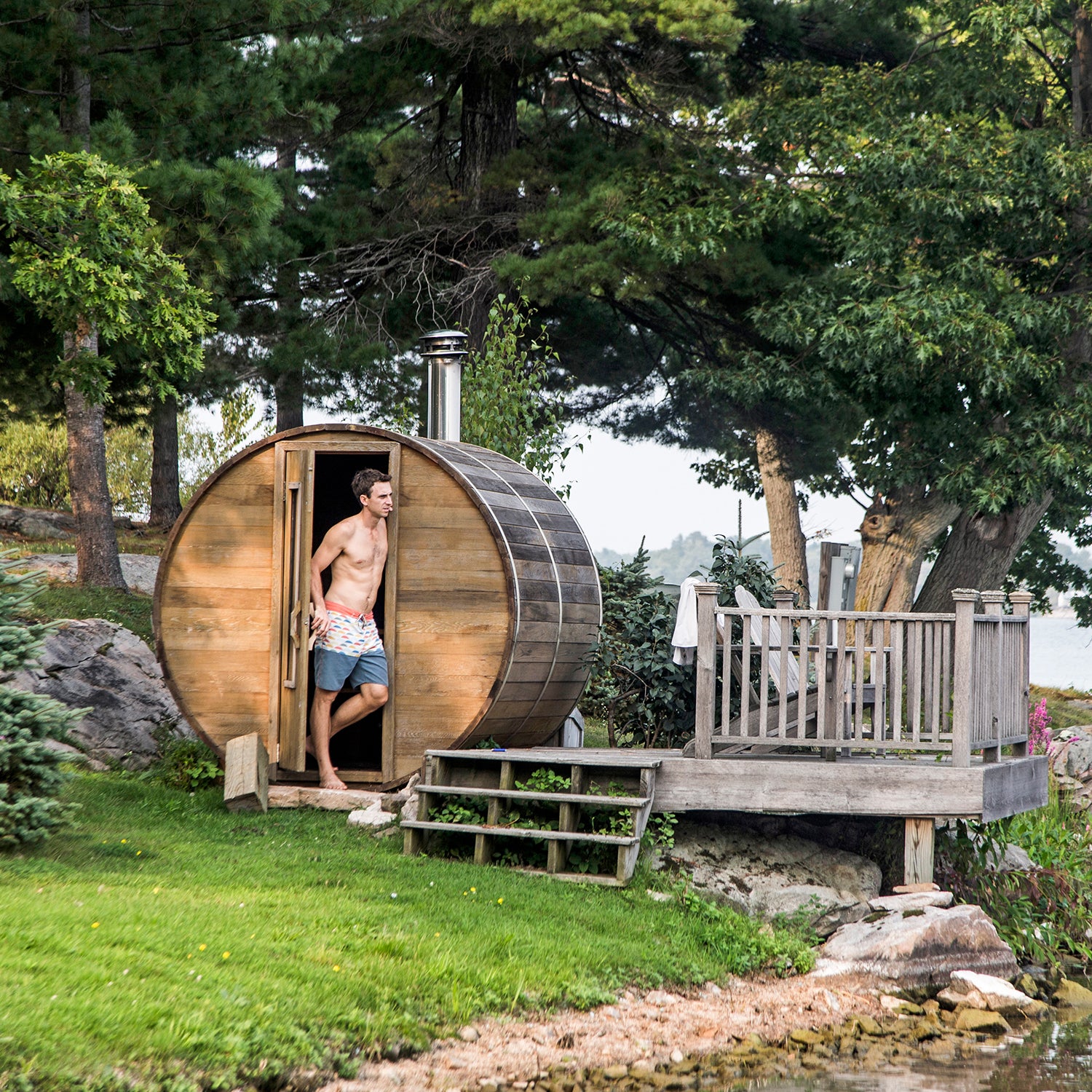We’re about an hour into our session at the Russian and Turkish Baths, an old-school bathhouse in New York’s East Village, when my friend Matt closes his eyes, throws his head back, and says, “I’m getting hit.” The two of us are sitting on a tiled ledge. Half-naked people in robes and bikinis mill about. I’m feeling sweaty and, as usual, anxious. But by the time we emerge onto the sidewalk an hour later, I feel immensely refreshed. My hands are wrinkled and pale, and I’m relaxed in ways I haven’t felt in weeks. I got the hit, too. It feels like an accomplishment—a runner’s high minus the running.��
The idea that extreme heat can improve mental health isn’t new. The Russian and Turkish Baths opened in 1892. Around that time, an Austrian scientist began giving patients fevers to treat psychosis—a technique that eventually earned him the 1927 Nobel Prize in medicine. While deliberately raising the body’s temperature (think sweat lodges and hot yoga) has long been an established practice in the wellness world, medical hyperthermia has seen a slow but steady trickle toward credibility in recent years.��
In 2016, Charles Raison, a researcher at the University of Wisconsin–Madison, published an intriguing study of 30 patients with clinical depression. Half of them rested on a bed while an infrared heat-lamp array raised their body temperature to 101.3 degrees. The control group was exposed to a sham treatment, which also involved bright lights but less heat. Though the study was small, whole-body warming showed a dramatic antidepressant effect. Raison’s colleagues are now trying to determine if infrared saunas might replicate their fancy medical-grade hot boxes.��
Jari Laukkanen, a Finnish cardiologist who’s fond of taking a daily sauna, has observed a similar pattern among larger groups. In a 2018 study of more than 2,000 Finnish men, he found a correlation between taking a traditional sauna four or more times a week and decreased risk of developing a physician-diagnosed mental-health disorder.��
While these correlations are certainly provocative, findings on the physical benefits of sauna heat are well-documented. Laukkanen’s published studies suggest that frequent sauna goers tend to live longer and have a lower risk of cardiovascular disease, compared with those who go once a week. These observations could have physiological underpinnings—saunas mimic the stress and sweating of light exercise with almost none of the physical exertion—but Laukkanen admits there are several possible explanations. As he put it to me, in less than perfect English that I’m paraphrasing: we shouldn’t underestimate the effects of sitting, calming down, and relaxing.��
These studies have sparked considerable debate in the medical community, in part because they involve a relatively passive intervention. But critics contend that these associations could stem from selection bias—fit people who exercise regularly may just happen to sauna more often. Sauna bathing could also serve as an indicator for people who live in affluent societies and have healthier living patterns. And it may be that simply believing saunas are calming acts as a placebo. In short, researchers haven’t teased out definite explanations for why the practice might stabilize the body or mind.��
Earlier this summer, Matt convinced me to buy a punch card to the bathhouse. So while I’m now a dedicated saunagoer, I’m still not entirely sure why our trips feel good. I just know that although an hour of sweating it out is no replacement for exercise, weathering those high temperatures creates low-impact stress and helps me relax afterward. Worst-case scenario: it’s a good excuse to get together with a friend and take a load off.


